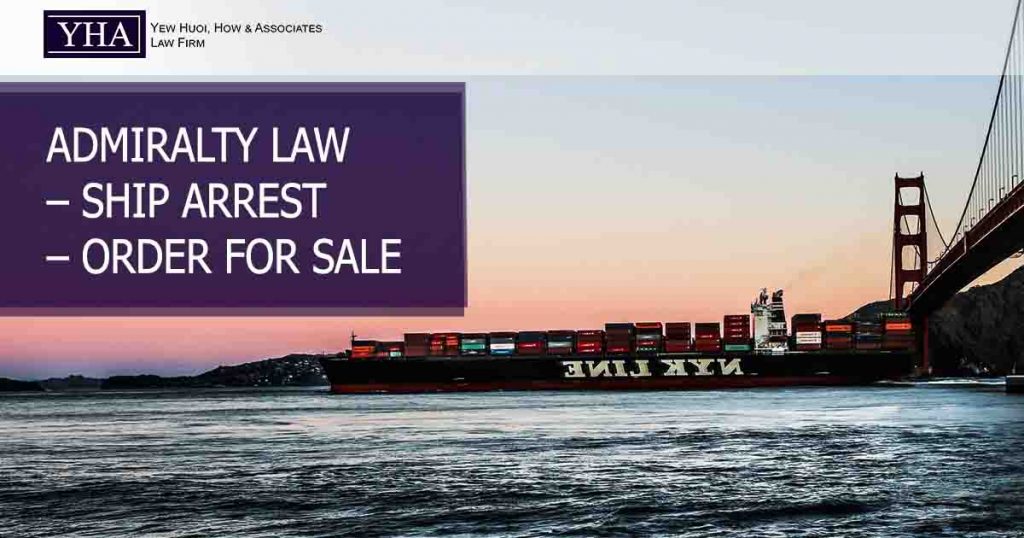Q: When can the court order a sale of vessel?
A: If the court is satisfied that there is a good reason to do so.
Where no security is put up to procure the release of the vessel after arrest, the court may make such an order. The shipowner has the duty to ensure he has the necessary and continuing financial means to maintain the vessel (i.e. repair from ordinary wear and tear exposed in rough sea conditions for being stationary for too long). If the shipowner is unable to do so, nor provide alternative security, then the court will order a sale of vessel.
Q: What constitutes a good reason? In contrast, what cease to be a good reason?
A: The judge will rely on four factors to assess ‘good reason’. For example, length of trial; daily costs incurred (bunkers, insurance, wages etc); maintenance costs to prevent deterioration of ship; security of claim would be diminished (i.e. vessel turned into a wasting asset).
Cases In Point: SSK B&T Pte Ltd v The Owners Of The Ship Or Vessel ‘Silver Moon’ Of Port Klang (No 2) [2017] 8 MLJ 466
Q: What are the common circumstances where court would make such an order?
The court is in favour to order a sale in the following situations :-
- reluctance of the shipowners to put up security for release of the vessel
- shipowners having nothing else to meet any judgment sum
- diminution in the value of the vessel
- value of the vessel is far lesser than the amount claimed
In contrast, the court would not make a pendente lite order in cases where :-
- cost of maintaining an arrested vessel is not substantial
- temporarily suspended vessels thus not incurring cost (i.e. hot/cold laying up)
- ongoing undertakings to pay for insurance and maintenance costs until the conclusion of the trial by the shipowner
Case In Point : ‘Jade Phoenix’ and ‘Golden Phoenix’ [1988] 2 CLJ 536
Q: How is the sale pendente lite executed?
A: The Admiralty Sheriff is required under the commission for appraisement and sale to sell at the highest price that can be obtained for the ship or maritime property. Appraisement is the official valuation of the ship or maritime property by a court appointed valuer in order to prevent it from being sold at too low a price.
The value of the vessel is then compared to the amount of the plaintiff’s claim. The proceeds of sale are placed on deposit and may be credited with interest.

